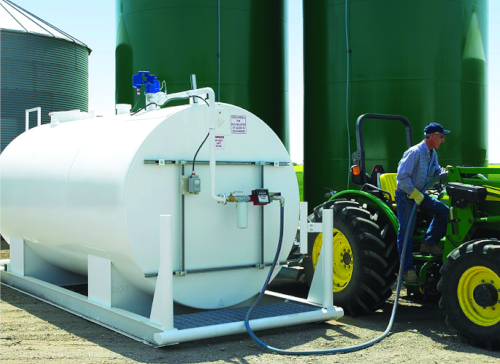Diesel is one of the most widely used fuels in the world. It is essential for powering everything from vehicles to generators. But when it comes to preserving diesel fuel for long-term storage, there are some do’s and don’ts that you should be aware of. Proper storage is key when it comes to keeping diesel in good condition, as it can quickly degrade if not managed. Knowing the right ways to store and handle diesel fuel can help you get the most out of your fuel and prevent costly damage. In this post, we’ll discuss the essential do’s and don’ts of storing diesel fuel for long-term use.
Why is proper diesel storage important?
Diesel fuel is a refined product made from crude oil. Like other fuels, diesel will degrade over time, especially if not stored properly. While this is a natural process, it can be accelerated by improper handling and storage procedures, resulting in significant fuel losses and equipment damage. If you aren’t storing your diesel in a way that protects it from outside elements, its possible to lose up to 25% of the fuel over one season of storage. If you use this fuel to power your farm equipment, generators and vehicles, you may experience a significant reduction in engine performance. Not only will this mean the diesel you have stored won’t last as long, but it will also likely result in damaged engine and fueling components. This is why it’s important to store diesel properly and protect it from damage and contamination.
Do’s for Storing Diesel Fuel for Long-Term Use
- Do choose the best available storage tank or container. When storing diesel fuel for long-term use, it’s important to use a well constructed tank or fuel container that keeps the fuel dry. Don’t opt for the cheap fuel storage solution. A well built system is the first line of defense against accelerated fuel aging and other fuel quality issues associated with a poorly constructed system.
- Do choose the best location for storing your fuel. Diesel fuel can be stored at a wide range of temperatures, but it should be kept away from extreme temperatures. Storing it at less than 32° Fahrenheit or above 95° Fahrenheit will cause the fuel to degrade at an accelerated rate. While you can store your fuel at a variety of temperatures, the temperature you keep it at will have an impact on the length of time it can be stored. Consider covered storage areas, sheltered from extreme weather or underground storage which can insulate the fuel from temperature related issues.
- Do know your fuel type and understand how to best store it. Most diesel fuel today has at least 5% biodiesel added to it. The options are wide ranging. If you are storing B100 (100% biodiesel) then you will need to be familiar with its storage limitations. For long-term storage, conventional diesel fuel is best for several reasons. Biodiesel and biodiesel blends have a shorter shelf-life and tend to be less stable than conventional diesel fuel. They are more sensitive to temperature and oxygen exposure. They are made from a variety of feedstocks that make it difficult to determine how to treat issues when they do arise.
- Do use Biobor Fuel Additives to preserve your fuel and reduce maintenance costs. Use Biobor JF to kill any microbial contamination and preserve the fuel over long-term storage. Use a multifunctional fuel additive like Biobor DC or Biobor MD to stabilize the fuel, improve cetane, add lubricity, add detergency and disperse water. All of these additive components will increase the shelf-life of your diesel fuel and stabilize it through the seasons.

Don’ts for Storing Diesel Fuel for Long-Term Use
- Don’t store your fuel in direct sunlight. Diesel fuel should be stored away from direct sunlight, to reduce accelerated fuel degradation. The more heat, the less stable your fuel becomes.
- Don’t allow your fuel inventory to drop too low. Keeping your tank full during long-term store will help to reduce condensation, a common problem when fuel levels are too low. Fuel that is kept dry will degrade more slowly.
- Don’t allow ignore your fuel system. Plan to inspect your system and fuel during long-term storage. If you see changes in the fuel quality or issues with the fuel system, fix the problems before they do more damage. Regular system inspections can reduce maintenance costs and fuel waste.
Diesel fuel quality is critical. Your equipment depends on it. Storing your fuel correctly, using the right additives and avoiding the common mistakes listed above will help you store your fuel for the long-term.
All the Fuel, All the Time®
Biobor is the premiere fuel additive for jet fuel, diesel and gasoline
Share the Post









The dos and don’ts of long-term diesel storage are crucial for maintaining fuel quality and engine performance. This guide offers practical advice to help avoid common storage issues and ensure the longevity of your diesel fuel. Thanks for sharing these valuable tips!
Thank you for your comments.